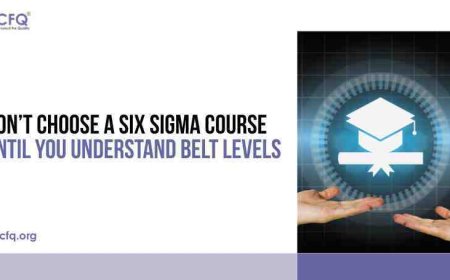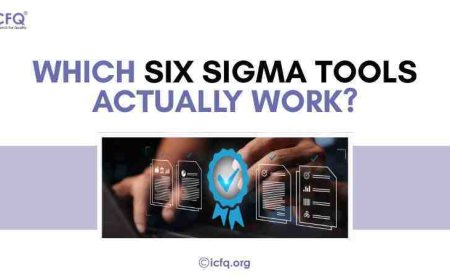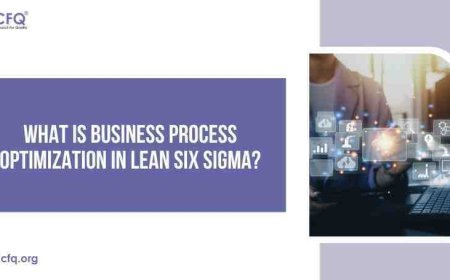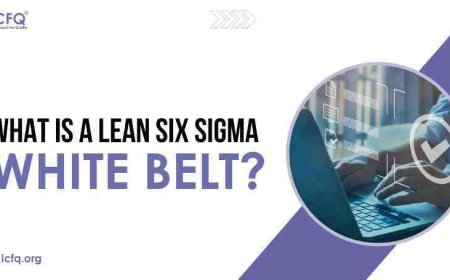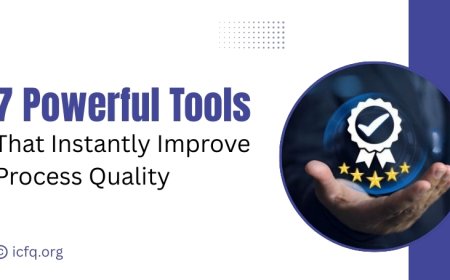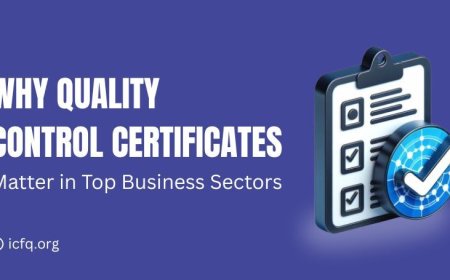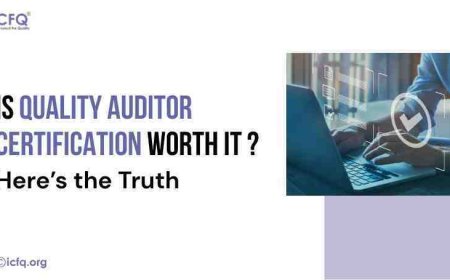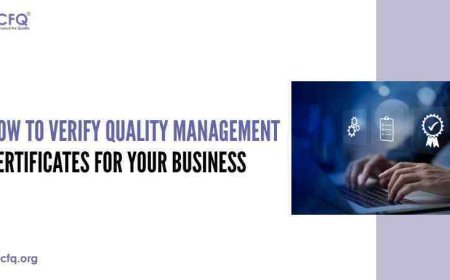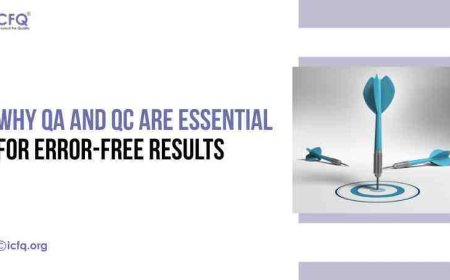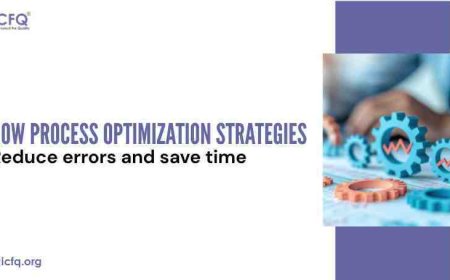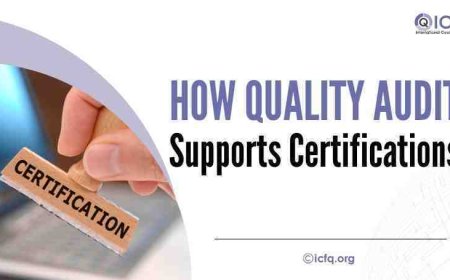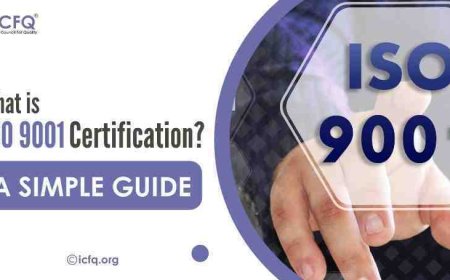Is Quality Auditor Certification Worth It? Here’s the Truth
Discover the real value of Quality Auditor Certification, its impact on your career growth, and how it enhances your professional credibility.
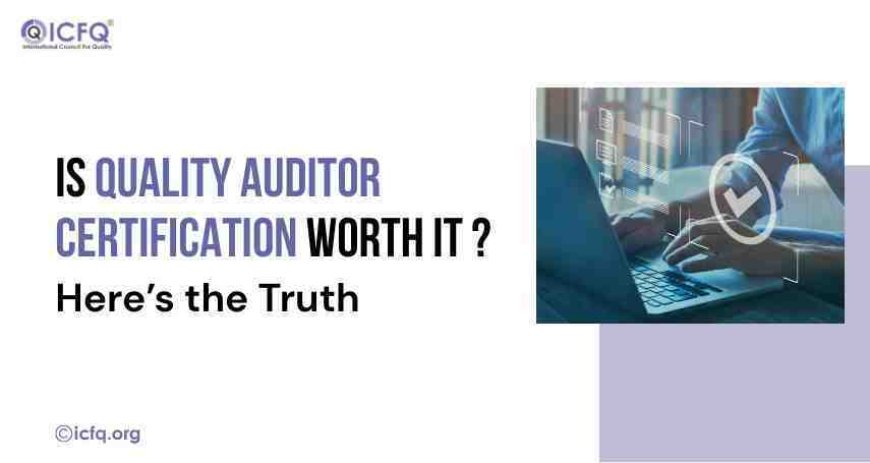
Every ambitious professional has that moment of doubt, wondering if investing time, money, and effort into a certification will truly pay off. Among the sea of professional courses, the Quality Auditor Certification often sparks curiosity, hope, and hesitation. Is it genuinely worth it, or just another credential gathering dust on your resume?
The real story behind this certification reveals how it can completely transform not just your career, but the way you approach work itself. Because this isn’t just about collecting credentials or adding a few extra letters after your name, it's about building real-world skills, earning professional credibility, and unlocking new opportunities that experience alone may not guarantee.
When you pursue a Quality Auditor Certification, you’re not just proving what you know - you’re proving that you care about excellence, consistency, and continuous improvement. And that’s what separates those who simply work from those who lead with impact.
What is Quality Auditor Certification?
At its core, a Quality Auditor Certification validates your skills in assessing, managing, and improving quality systems within organizations. Companies across industries manufacturing, IT, healthcare, automotive, and more - depend on auditors to maintain standards, comply with regulations, and improve efficiency.
Think of a certified quality auditor as the guardian of organizational standards. They ensure processes are streamlined, risks are minimized, and compliance is never compromised. This certification proves you can scrutinize processes critically and implement improvements, making you a highly valuable asset in any organization.
The certification covers topics like:
-
Auditing principles and procedures
-
Risk management and mitigation
-
Regulatory compliance
-
Process improvement strategies
-
Documentation and reporting techniques
By the end of the program, candidates not only understand theory but also gain hands-on auditing skills that can be applied immediately.
Why Professionals Consider It
1. Career Advancement
Many professionals feel stuck in their current roles. A Quality Auditor Certification can be the edge needed for promotions, leadership roles, or lateral moves into specialized positions. In competitive workplaces, certified auditors often get preference because employers see them as reliable, competent, and prepared for complex responsibilities.
2. Credibility Boost
Certification signals professionalism. Organizations value auditors who are certified because it demonstrates that they understand industry standards, are trained to follow protocols, and can implement practical solutions. A certified auditor carries a sense of trustworthiness that non-certified professionals may struggle to convey.
3. Skill Enhancement
Beyond credentials, the training equips you with hands-on skills- risk assessment, process auditing, compliance analysis, and quality improvement. You learn to identify inefficiencies, propose actionable solutions, and implement processes that lead to measurable results.
For example, a certified auditor may notice a recurring error in a manufacturing process that costs the company thousands annually. With certification-backed expertise, they can recommend changes that save money and improve efficiency.
4. Networking Opportunities
Certification programs connect you with peers, mentors, and industry leaders. These connections often lead to collaborations, referrals, or job opportunities. Networking during training can be as valuable as the certification itself.
5. Financial Benefits
According to industry surveys:
-
Certified auditors can earn 20–30% higher salaries than non-certified peers.
-
Organizations report 35% fewer compliance issues when employing certified auditors.
-
Certified auditors often see faster promotions due to demonstrated competence.
Clearly, certification isn’t just a fancy title- it translates into tangible professional and financial benefits.
Addressing Common Concerns
“It’s Expensive”
Yes, certification requires investment. But consider the return: higher salary, faster promotions, and skill growth. In many cases, the certification pays for itself in less than a year.
“I Already Have Experience”
Experience is vital, but certification validates that experience in a standardized, recognized way. It’s the difference between “I know how to do it” and “I am officially recognized to do it.” Many organizations prioritize certified professionals even if non-certified candidates have years of experience.
“Will Employers Value It?”
Absolutely. Companies increasingly prefer auditors with recognized certifications because it ensures consistency, knowledge of global standards, and reduced risk of errors. Certification shows employers that you are proactive and invested in your professional growth.
Industry Demand and Opportunities
The demand for certified auditors is growing across industries:
-
Manufacturing: Ensuring product quality and compliance with ISO standards.
-
Healthcare: Auditing patient safety, records, and regulatory compliance.
-
IT & Software: Ensuring processes meet quality standards and cybersecurity compliance.
-
Automotive & Aerospace: Meeting global safety and quality regulations.
According to market reports, organizations that hire certified auditors see fewer compliance failures and higher operational efficiency. This demand translates to opportunities, higher salaries, and career growth for certified professionals.
The Skills You Gain
A Quality Auditor Certification doesn’t just enhance your resume- it equips you with a toolkit of essential skills:
-
Process Analysis: Understand how processes work and identify inefficiencies.
-
Risk Assessment: Detect potential problems before they escalate.
-
Compliance Knowledge: Learn regulatory standards applicable across industries.
-
Reporting & Documentation: Prepare precise audit reports that inform decision-making.
-
Leadership & Decision-Making: Develop the confidence to implement improvements effectively.
These skills make certified auditors indispensable, whether in small firms or multinational corporations.
Tips to Maximize Your Certification
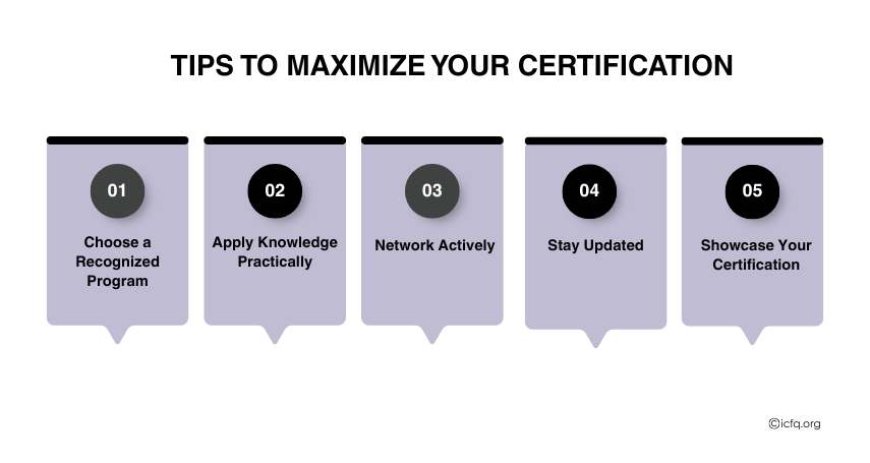
-
Choose a Recognized Program: Accreditation ensures your certification is respected globally.
-
Apply Knowledge Practically: Participate in real-life audits or simulations to strengthen understanding.
-
Network Actively: Build relationships with mentors, peers, and industry professionals.
-
Stay Updated: Industry standards change; continuous learning keeps you relevant.
-
Showcase Your Certification: Highlight your certification on LinkedIn, resumes, and professional profiles to attract opportunities.
Why Now Matters
Here’s the reality: the longer you wait, the more opportunities pass by. Organizations are constantly hiring certified auditors to meet compliance standards and optimize processes. By earning your Quality Auditor Certification today, you position yourself ahead of the curve.
Every day without certification is a day where someone else could seize the role, promotion, or project that could have been yours. This isn’t about fear- it’s about proactive career growth and seizing opportunities before they vanish.
Is Quality Auditor Certification Worth It?
If you’re serious about growth, credibility, and opportunity, the answer is clear. A Quality Auditor Certification is not just a piece of paper, it’s a career catalyst. It opens doors, validates your skills, and equips you to lead with authority.
The choice is yours: continue as you are, or take a bold step that could redefine your career trajectory. The next success story could be yours.
Ready to elevate your career? Start your journey with ICFQ today and become a certified Quality Auditor who stands out in any industry.

